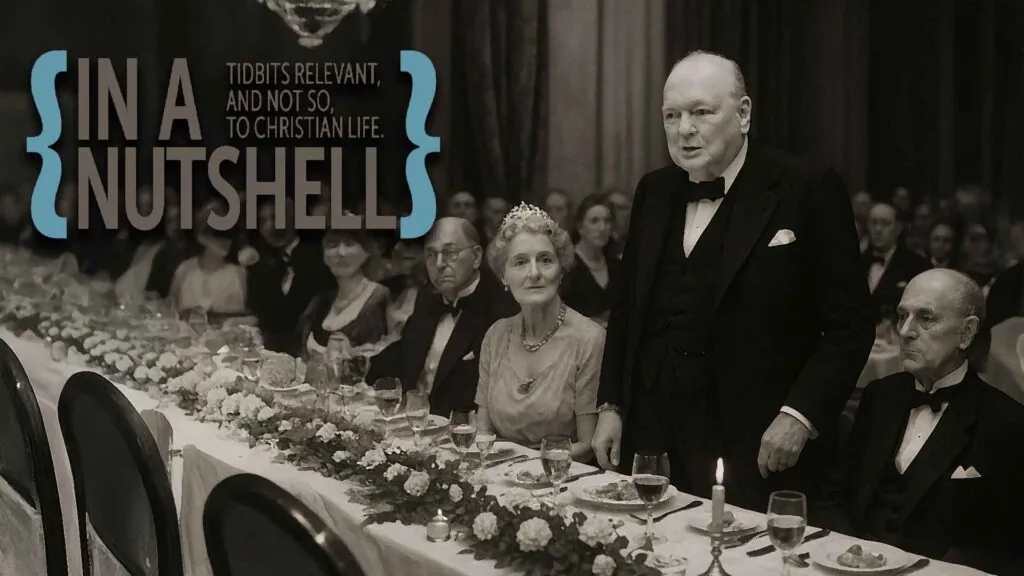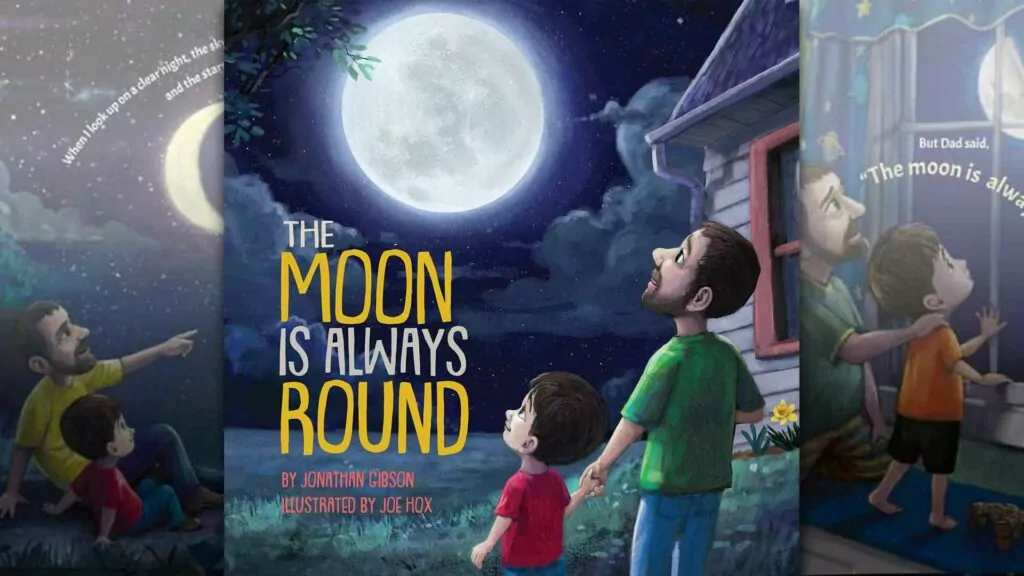Ping Pong
by Jay Adams
“A soft answer turns away wrath. But a foolish word stirs up anger.” – Proverbs 15:1. Every time I read that Proverb, I think of Ping Pong.
How’s that?
Oh… it just seems to illustrate the principle in the proverb so well!
Don’t get it.
You see, many Proverbs are pictured principles of portable truth.
What about Ping Pong?
Oh! Here’s what I meant. One player slams a ball as hard as he can. What happens after that?
Dunno.
The other guy has to move away in order to receive it. It drives them farther apart.
Yeah? And……?
And if he slams one back just as hard, or harder, that separates them all the more.
Sure.
But if he simply answers the slam with a gentle return by merely holding his paddle still in receiving it, the ball barely goes back over the net and…
…and that draws them closer together.
Right! So what’s the principle in the picture?
Don’t slam people?
I give up.
Taken, with permission, from www.nouthetic.org where you can find more of Jay Adams’ wit and wisdom.
When’s the last time an elephant called you on your birthday?
I’ve always been bad with names – so bad that, back in high school, I just called all my teachers “sir” (which worked great, except with Miss Schoen). I’ll sometimes be told about how “an elephant never forgets,” as some kind of challenge or encouragement to do better. But really, what do elephants even need to remember? Where they left their car keys? Nope, because elephants insist on walking everywhere they go. What about putting the milk back in the fridge? Don’t need to remember that either, because elephants are totally fine with lukewarm milk. Do they know any of the provincial capitals? No siree, because where they’re from they don’t have provinces. What about all their spouse’s coworkers’ names? Not only do elephants not have coworkers, they don’t have names! I mean, when we’re born, right there in the hospital, we get slapped with Harry, Sally, Fred, or Brooke – so many names to remember! But elephants? They don’t even have a place where the elephants are named! If an elephant never forgets, it’s only cause he’s got nothing to remember!
So, yes, I do need to get better at people’s names… but don’t get me started on elephants!
We do have fun here
Last month, RP staff was batting around new catchphrases for our Real Talk podcast. All sorts of ideas were shared, including some solid ones by our Executive Director Mark Penninga. But the last on his list struck me as curious: “a place where the elephants are named.” I thought he was having fun, ending his serious list with one that was just plain silly so, to add to the joke, I pledged that if we didn’t pick it, it was so good I’d have to use it in my Nutshell column. So I did, in the joke above. Turns out, though, the joke’s on me. Only afterwards did I realize Mark was referencing the “elephant in the room”… which we do indeed need to name. Just not Harry, Sally, Fred, or Brooke!
Domination, no. But dominion, yes.
One key difference between secular environmentalism and biblical stewardship is the role they see for Mankind. While environmentalism is a broad movement with differing views, secularists will see Man as merely a part of Nature – and a potentially disruptive, destructive part at that. Meanwhile, God has placed us at the pinnacle of His creation, and given us a role in managing it. Art Caden and Caleb Fuller (featured on a recent Real Talk episode) give a great summary in their Christian economics primer, Mere Economics:
“‘Filling’ and especially ‘subduing’ might sound aggressive, but it’s the language of Genesis 1, where God issues his first command:
‘Be fruitful and multiply and fill the earth and subdue it, and have dominion of the fish of the sea and over the birds of the heavens and over every living thing that moves on the earth.’
God’s first command to humanity, believe it or not, is ‘reproduce.’
“This Creation Mandate establishes people as God’s stewards on earth, dispelling a host of fashionable economic misconceptions about creation along the way. That humanity is to ‘fill’ and ‘subdue’ suggests that creation is not a museum where only the daintiest white-glove treatment is permitted. From the beginning, God told people to develop and cultivate creation’s potential….
“Genesis 1 also shoots down the opposite error, that we can do whatever we please. God calls his creation ‘good,’ which means earth mustn’t be stripped bare or treated as a cosmic trash heap, as in 2006’s Idiocracy or 2008’s WALL-E. Humanity is to exercise “dominion” – stewardship that cultivates creation’s nascent possibilities for the good of the creature and the glory of God. We are not permitted to exercise ‘domination,’ whereby one’s gain is another’s loss. The fundamental question for mere economics becomes: How do we avoid stumbling headlong into either a refusal to cultivate or a drive to dominate creation?”
Ten conversation starters
Going out for a date with your spouse became almost impossible once the kids arrived. But now, when you’ve finally pulled it off, you can’t think of anything to talk about except the kids!
Don’t worry. In their book Love Talk Starters, Les and Leslie Parrott outline 275 questions that are guaranteed to get your conversation going. Here are a few:
- How would you finish this sentence: “My spouse is gifted at…”
- Think of a time your mom or dad apologized to the other. What have you learned about apologizing to your spouse from your parents?
- Can you name a spiritual goal you have as a couple? If not, is there one you can set together now?
- What topic of conversation do you most fear discussing with your spouse?
- What would be the perfect way for your spouse to wake you up in the morning?
- On a scale of 1-10, how would you feel to receive a brief call from your spouse just to say, “I love you”? How do each of your ratings differ?
- When your spouse is ill, how would you rate your bedside manner? From your spouse’s perspective, what would improve it?
- What patterns of behavior, for better or worse, did you establish in your first year of marriage?
- What word of advice would you give to a couple about to be married?
- What is the most tender way your spouse says, “I love you” without using words?
If you believe in evolution then why not teach prostitution?
Renton Maclachlan is a New Zealander with a gift for getting to the heart of a matter. What follows is an extract from a 2008 speech in which he asks the provocative question, “Why shouldn’t prostitution classes be run at high schools?”
“Taught in various ways from the bottom to top of the educational system is the idea that life, the universe and everything is the result of blind, impersonal, purposeless, and amoral forces. That we are not the Creation of a personal moral Creator and thus are not subject to any rules such a Creator may have set for our behaviour. There is no higher law or higher Lawgiver. We are the lawmakers, and we will make any law we like.
“On this basis, [the New Zealand] Parliament legalized prostitution, making it just another service industry – like selling hamburgers, or teaching…. For four years at Onslow College I did woodwork and tech drawing, and then the Careers adviser arranged for me to visit a number of building outfits to see if I liked the idea of becoming a builder. Building is a valid service industry for students to train and find employment in. So now that prostitution has joined building as a valid service industry, why shouldn’t prostitution classes be run at high schools like technology classes are, and why should career advisers not arrange trips to brothels for aspiring prostitutes?
“In a Darwinian world, the type of world presupposed throughout most of the educational sector in New Zealand… no valid objection can be raised.”
While the world has no basis to raise objections, we all know such a class would be wrong. So… why? While the world has no basis for objection, God’s Word tells us why we would all – Christian and unbeliever – object anyway. It’s because His law is written on our hearts (Romans 2:14-15). We all know better, even when we pretend not to.
You can’t multiply wealth by dividing it
“You cannot legislate the poor into freedom by legislating the wealthy out of freedom. What one person receives without working for, another person must work for without receiving. The government cannot give to anybody anything that the government does not first take from somebody else. When half of the people get the idea that they do not have to work because the other half is going to take care of them, and when the other half gets the idea that it does no good to work because somebody else is going to get what they work for, that my dear friend, is about the end of any nation. You cannot multiply wealth by dividing it.” – Dr. Adrian Rogers
Great free Calvin biography
John Piper has republished T.H.L. Parker’s 1954 biography of Calvin and made it available online as a free download. It is a short book, only 127 pages, that can be read in an evening, and it is well worth doing so. You can find it at DesiringGod.org here.
Lyric o’ the month
The band MercyMe, taking on their own biggest idols in “So long to self,” on their album Coming up to Breathe
Well, if I come across a little bit distant
It’s just because I am
Things just seem to feel a little bit different
You understand
Believe it or not, but life is not apparently
About me anyways
But I have met the One who really is worthy
So let me say
So long, self
Well, it’s been fun, but I have found Somebody else
So long, self
There’s just no room for two
So you are gonna have to move
So long, self
Don’t take this wrong, but you are wrong for me, farewell
Oh well, goodbye, don’t cry
So long, self
Stop right there because I know what you’re thinking
But no, we can’t be friends
And even though I know your heart is breaking
This has to end
And come to think of it, the blame for all of this
Simply falls on me
For wanting something more in life than all of this
Can’t you see
Farewell, goodbye
So long self
C.S Lewis on “Should you risk asking her out?”
“To love at all is to be vulnerable. Love anything, and your heart will certainly be wrung and possibly be broken. If you want to make sure of keeping it intact, you must give your heart to no one, not even to an animal. Wrap it carefully around your hobbies and little luxuries; avoid all entanglements; lock it up safe in the casket or coffin of your selfishness. But in that casket — safe, dark, motionless, airless — it will change. It will not be broken; it will become unbreakable, impenetrable, irredeemable.” – The Four Loves, chapter 6
Taming the terrible tongue
“One of the first things that happens when a man is really filled with the Spirit is not that he speaks with tongues, but that he learns to hold the one he already has.” – J. Sidlow Baxter
Different sort of dictionary S-Z
Suburbia: Where they cut down trees and put in streets named after them.
Tact: making a point without making an enemy
Tattoo: permanent proof of temporary insanity
Toothache: The pain that drives you to extraction.
Vegetarian: Old Indian word for bad hunter.
Vocabularian: A person who makes up new words.
Volunteer: Take on work that makes no cents.
Weed: an unloved flower
Worry: interest paid on trouble before it falls due.
Yawn: An honest opinion openly expressed.
SOURCE: various emails making their way around the Internet












